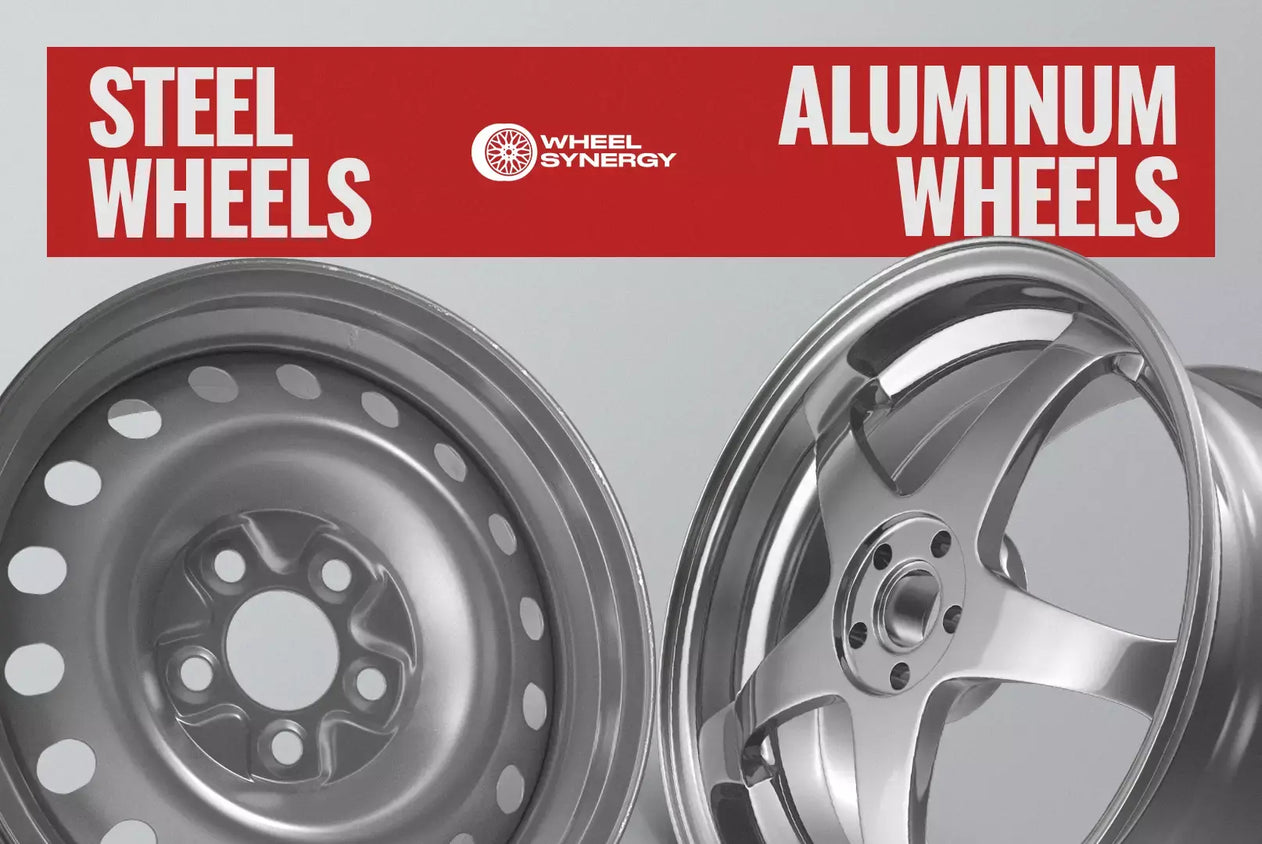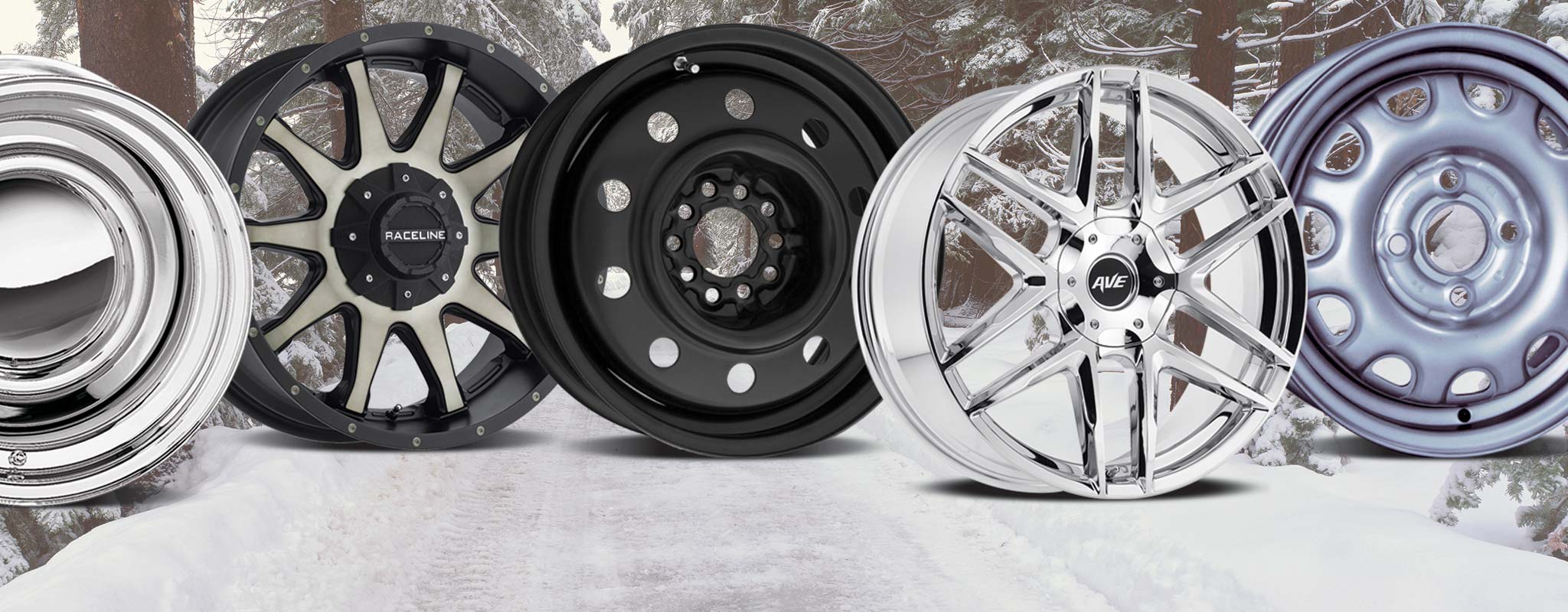Are aluminum wheels better than steel? This is a question that many car owners ponder, and the answer isn’t always straightforward. It depends on your priorities and driving style. Aluminum wheels offer a compelling blend of lightweight performance and stylish aesthetics, while steel wheels are known for their durability and affordability. We’ll delve into the key factors to help you make an informed decision.
We’ll examine the advantages and disadvantages of each type, considering weight, strength, cost, maintenance, and even environmental impact. By the end of this exploration, you’ll have a better understanding of which wheel type might be the right fit for your needs.
Weight and Performance
The weight of your car’s wheels significantly impacts its performance, particularly when it comes to acceleration, braking, and fuel efficiency. Aluminum wheels, being lighter than their steel counterparts, offer advantages in these areas.
Impact of Wheel Weight on Performance
The weight of a car’s wheels directly affects its inertia, which is its resistance to changes in motion. Lighter wheels have less inertia, meaning they are easier to accelerate and decelerate. This translates to improved performance in various aspects:
- Acceleration: Lighter wheels reduce the amount of energy required to get the car moving, resulting in quicker acceleration times. Imagine the difference between pushing a heavy shopping cart and a lightweight one – the lighter one accelerates faster.
- Braking: Similarly, lighter wheels require less energy to slow down, leading to shorter braking distances. The reduction in inertia allows the brakes to work more effectively, stopping the car quicker.
- Fuel Efficiency: Lighter wheels contribute to improved fuel efficiency by reducing the overall weight of the car. The engine doesn’t need to work as hard to move the vehicle, leading to lower fuel consumption.
Improved Handling and Responsiveness
Lighter wheels also enhance a car’s handling and responsiveness. The reduced unsprung weight, which refers to the weight of components that aren’t supported by the suspension, improves the suspension’s ability to react to road conditions. This results in:
- Sharper Turn-In: Lighter wheels allow the car to turn more quickly and precisely, as the suspension can respond more readily to steering inputs.
- Enhanced Stability: The reduced unsprung weight helps maintain better control, particularly when cornering or driving over uneven surfaces.
- Smoother Ride: The suspension’s improved ability to absorb bumps and dips leads to a more comfortable ride, especially on rough roads.
Strength and Durability: Are Aluminum Wheels Better Than Steel

When comparing aluminum and steel wheels, strength and durability are crucial factors. While both materials are robust, their properties and performance in real-world scenarios differ significantly.
Tensile Strength and Impact Resistance
Tensile strength refers to a material’s ability to withstand pulling forces without breaking, while impact resistance measures its ability to absorb shock without fracturing. Aluminum generally has a lower tensile strength than steel, but it excels in impact resistance. This means aluminum wheels are more likely to bend or deform under heavy loads, but they are less prone to cracking or shattering under impact.
Steel, on the other hand, has a higher tensile strength, making it more resistant to stretching or breaking. However, it has lower impact resistance, meaning it’s more susceptible to cracking or shattering under sudden impact.
Real-World Scenarios
- Aluminum wheels are commonly used in high-performance vehicles and race cars due to their lightweight nature, which improves acceleration and handling. Their impact resistance also makes them ideal for off-road vehicles and those that frequently encounter rough terrain. For example, a mountain bike with aluminum wheels can absorb the shock of hitting rocks and roots, minimizing the risk of wheel damage.
- Steel wheels are often preferred for trucks and heavy-duty vehicles, where their higher tensile strength is crucial for carrying heavy loads. Steel wheels are also more resistant to corrosion, making them a suitable choice for vehicles that operate in harsh environments. For example, a construction truck with steel wheels can handle the weight of heavy materials without bending or breaking, even when navigating uneven terrain.
Potential for Damage and Repairs
- Aluminum wheels are more prone to bending and warping, especially under heavy loads or severe impacts. While they are often repairable, the repair process can be complex and costly. A deep scratch or bend in an aluminum wheel might require specialized equipment and techniques to restore its original shape and strength.
- Steel wheels are more resistant to bending but are more likely to crack or break under impact. While steel wheels are typically more affordable to repair, the damage may be more extensive, potentially requiring replacement. A cracked steel wheel, for example, might not be repairable and require a complete replacement.
Cost and Maintenance

The cost of wheels and their maintenance is a significant factor in deciding between aluminum and steel wheels. While aluminum wheels often have a higher initial cost, they may offer long-term cost savings due to their lighter weight and durability. Let’s delve into the cost and maintenance aspects of both types.
Initial Cost
The initial cost of wheels is a crucial consideration. Aluminum wheels generally cost more than steel wheels. The price difference can vary depending on factors such as size, design, and brand.
- Steel wheels are typically the more affordable option, with prices ranging from $50 to $150 per wheel. This price range is influenced by factors like size and the presence of any additional features like hubcaps.
- Aluminum wheels, on the other hand, can range from $100 to $500 or more per wheel. Their cost is often driven by factors like design complexity, brand reputation, and the inclusion of features like lightweight materials or special coatings.
Aesthetics and Customization
When it comes to aesthetics and customization, aluminum wheels have a clear advantage over steel wheels. This is because aluminum is a more versatile material, allowing for a wider range of designs and finishes.
Wheel Designs and Finishes, Are aluminum wheels better than steel
Aluminum wheels can be crafted into a variety of styles, from classic and understated to bold and eye-catching. This versatility allows for a higher degree of customization, enabling drivers to express their personal style through their vehicle’s appearance.
- Spoke Design: Aluminum wheels offer a wider range of spoke designs, including multi-spoke, split-spoke, and mesh designs. This allows for greater control over the visual impact of the wheel, from a sleek and minimalist look to a more aggressive and sporty appearance.
- Color Options: Aluminum wheels can be painted in a variety of colors, including silver, black, gray, and even bright colors like red or blue.
This allows for a more personalized look, allowing drivers to match their wheels to the color of their vehicle or to create a unique contrast.
- Finishes: Aluminum wheels can also be finished in a variety of ways, including polished, brushed, or powder coated. These finishes can add a touch of elegance and sophistication to the wheel, enhancing its visual appeal.
Popular Wheel Styles
The popularity of certain wheel styles varies depending on the vehicle and the owner’s preferences. However, some popular styles for aluminum wheels include:
- Multi-spoke wheels: These wheels are known for their clean and modern look. They typically feature a large number of spokes that radiate from the center of the wheel, creating a sense of movement and speed.
- Mesh wheels: These wheels feature a more intricate design, with a network of spokes that intersect and create a mesh-like pattern. Mesh wheels are often associated with a sporty and aggressive look.
- Split-spoke wheels: These wheels feature spokes that are split into two or more sections, creating a more complex and visually interesting design. Split-spoke wheels are often used on luxury vehicles and performance cars.
Environmental Impact

The environmental impact of manufacturing and using aluminum and steel wheels is a crucial factor to consider when choosing between the two. Both materials have their own environmental footprint, and understanding these impacts is essential for making informed decisions.
Manufacturing Processes
The manufacturing processes of aluminum and steel wheels have significant environmental implications. Aluminum production requires a large amount of energy, primarily from electricity. This energy often comes from fossil fuels, contributing to greenhouse gas emissions. Steel production also involves significant energy consumption, with the process relying on high temperatures and the use of coal and coke. The mining of bauxite ore for aluminum and iron ore for steel also contributes to environmental damage, including deforestation, soil erosion, and habitat loss.
Recycling Potential
Both aluminum and steel are highly recyclable materials, offering a significant advantage in terms of environmental sustainability. Aluminum can be recycled infinitely without any loss of quality, making it a highly valuable material. The recycling process for aluminum requires significantly less energy than primary production, reducing greenhouse gas emissions. Steel is also highly recyclable, and the recycling process for steel is energy-efficient, using around 30% less energy than primary production.
Sustainability Considerations
While both aluminum and steel wheels are recyclable, their overall sustainability depends on various factors, including the source of the raw materials, the efficiency of the manufacturing process, and the end-of-life management of the wheels. Sourcing materials from sustainable mines and using renewable energy in the manufacturing process can significantly reduce the environmental footprint of both materials. Additionally, the development of closed-loop recycling systems can further enhance the sustainability of aluminum and steel wheels.
Ultimately, the choice between aluminum and steel wheels comes down to personal preference and priorities. Aluminum wheels offer a performance edge and a touch of luxury, while steel wheels provide a more budget-friendly and robust option. By weighing the pros and cons, you can determine which type best aligns with your driving habits and financial considerations.
Common Queries
Do aluminum wheels rust?
Aluminum is naturally resistant to rust, making it a good choice for areas prone to moisture.
Are aluminum wheels more expensive to repair?
Aluminum wheels can be more expensive to repair, as they often require specialized equipment and techniques.
Can I mix aluminum and steel wheels on the same car?
It’s generally not recommended to mix aluminum and steel wheels on the same car due to differences in weight and performance.
What are the benefits of steel wheels?
Steel wheels are durable, affordable, and can be easily repaired.
How do I clean aluminum wheels?
Use a dedicated wheel cleaner and a soft cloth to avoid scratching the surface.